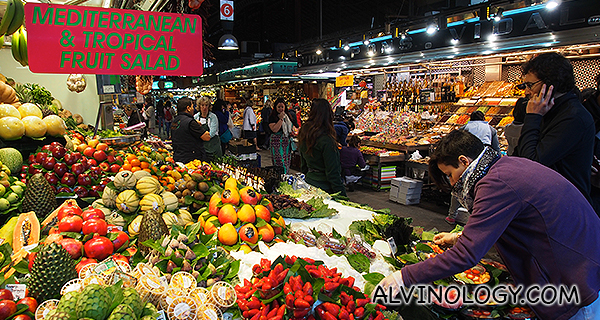
When I travel, I like to visit local food markets to check out local food fares.
In Barcelona, the Mercat de Sant Josep de la Boqueria, often simply referred to as La Boqueria Market, is a large public market in the Ciutat Vella district. It is one of the city’s foremost tourist landmarks, with an entrance from La Rambla, another rich shopping street.
The market has a very diverse selection of goods, ranging from live seafood, fresh vegetables to herbs, spices and cooked food. It is one of the oldest market in Barcelona, with lots of colours and things to see:
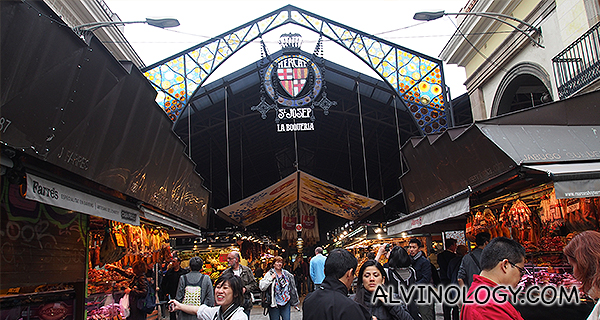
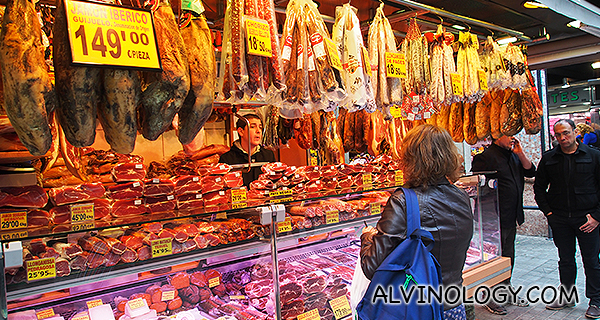
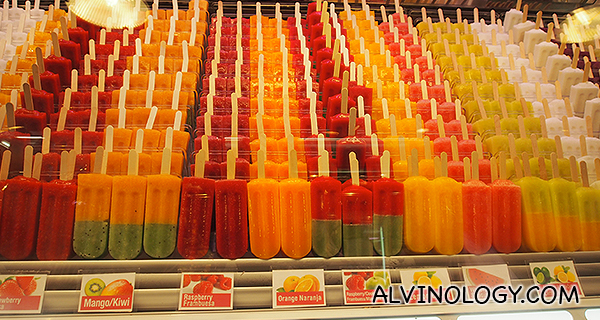
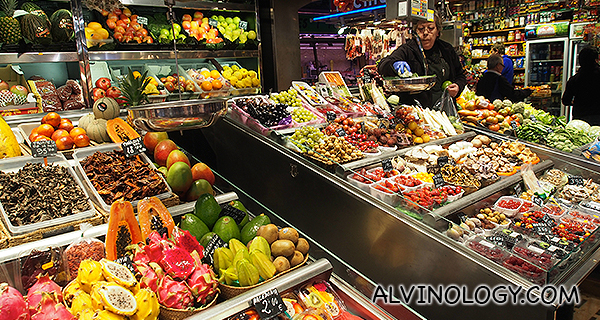
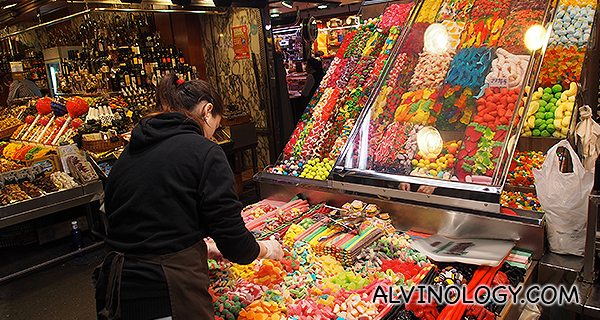
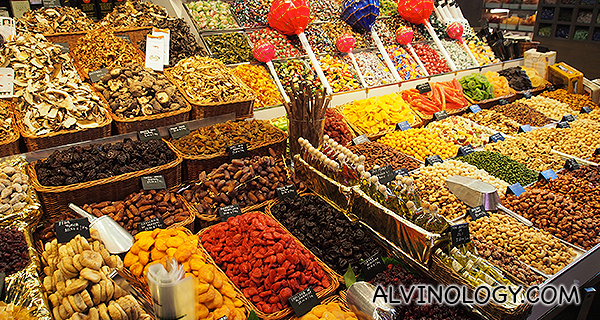
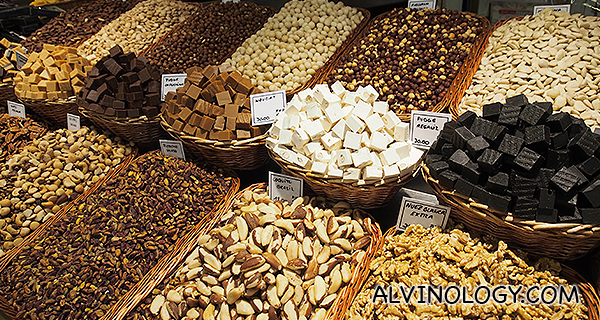
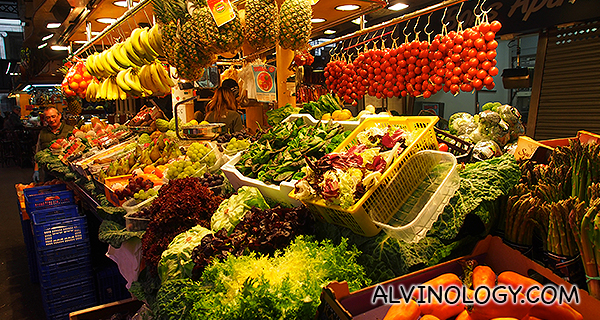
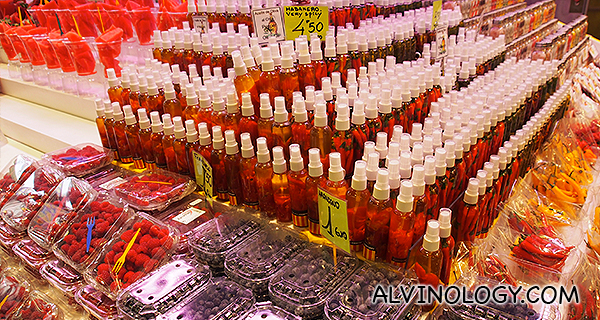
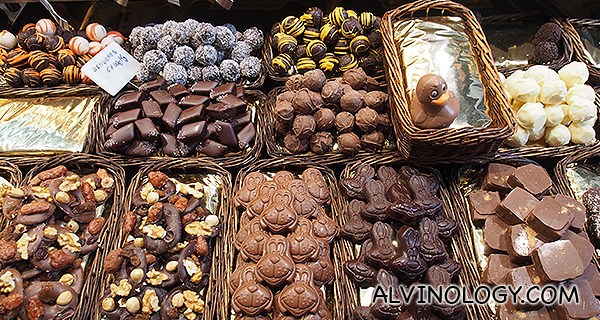
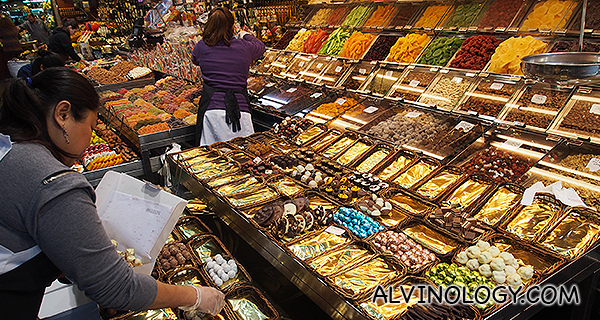
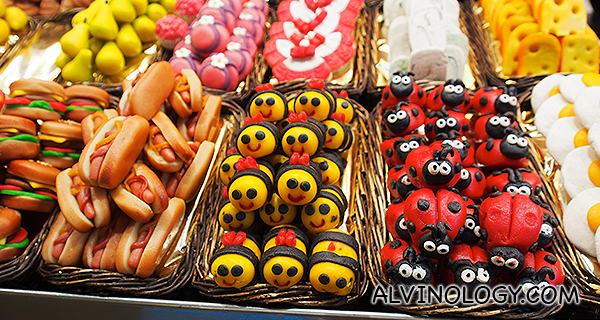
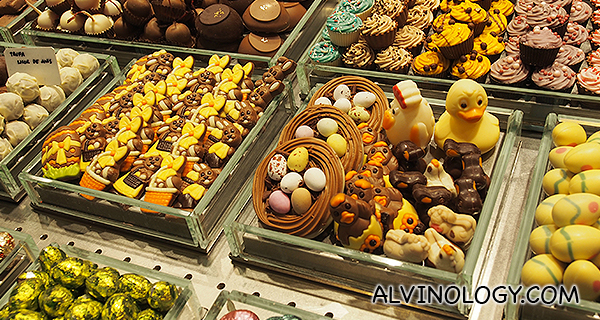
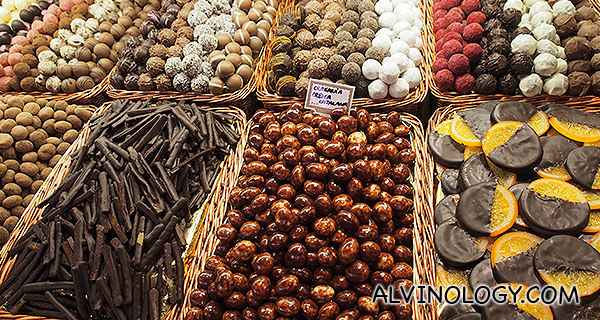
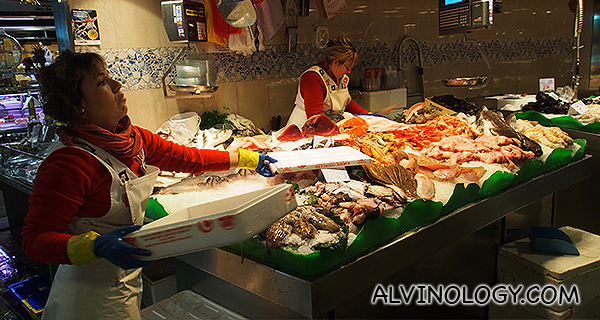
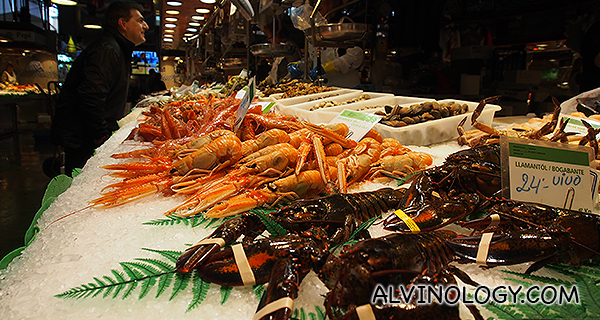
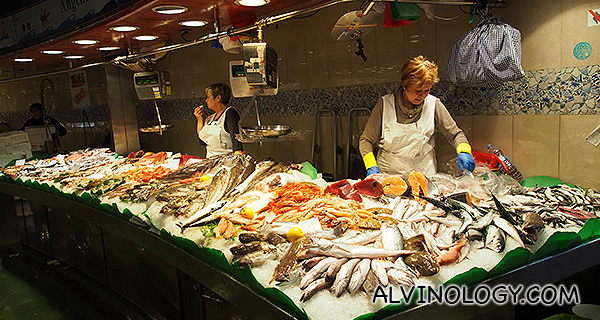
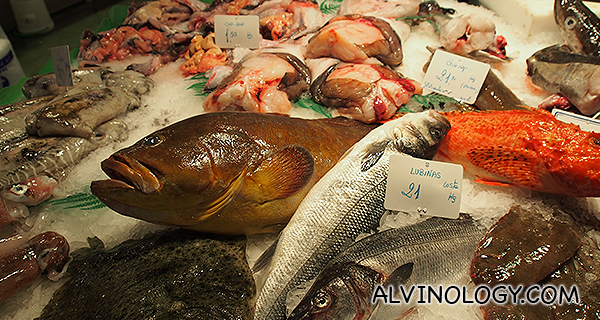
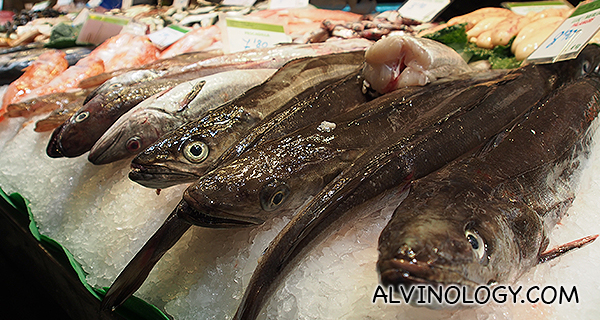
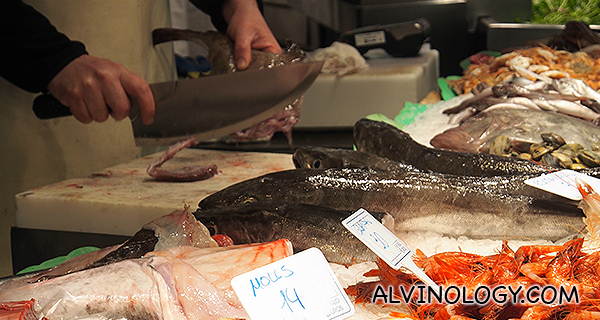
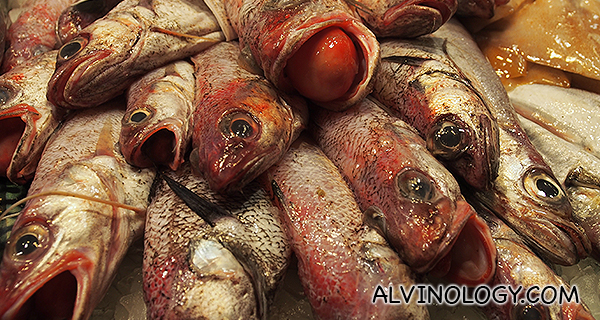
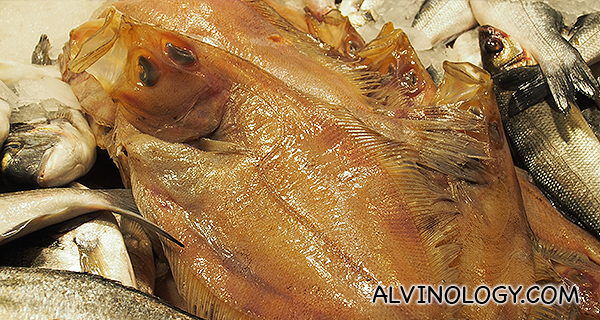
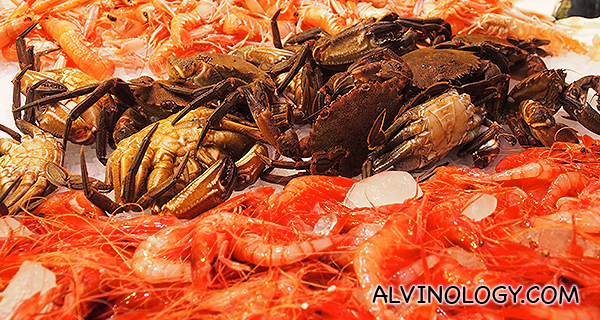
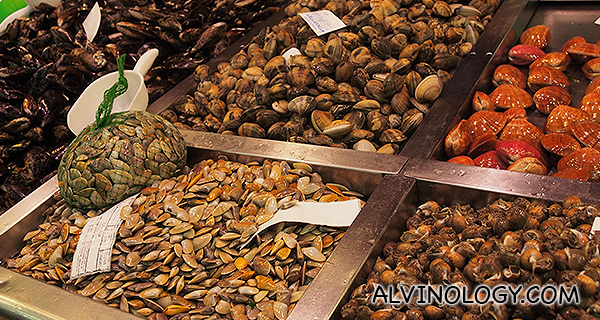
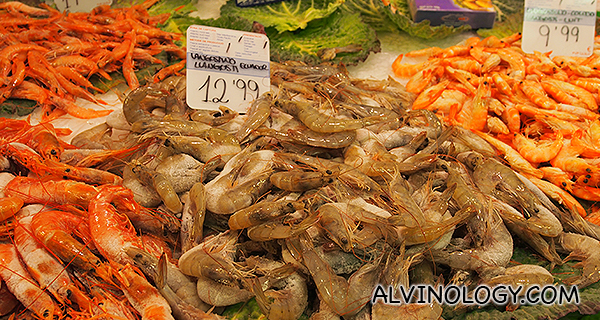
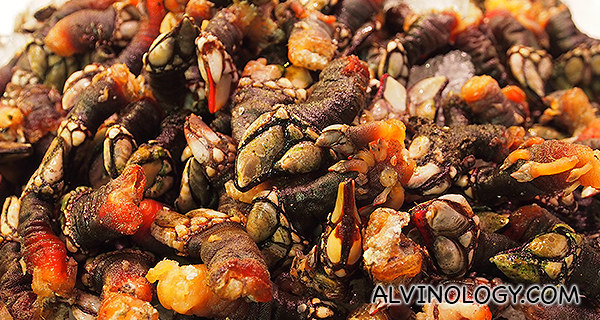
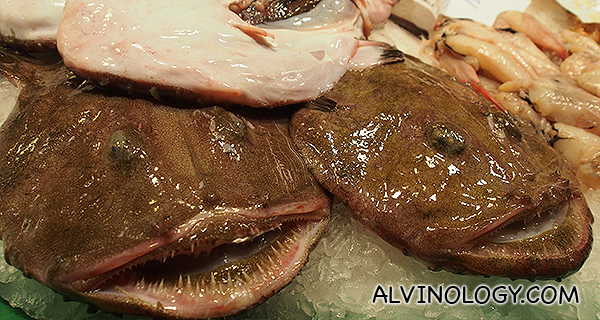
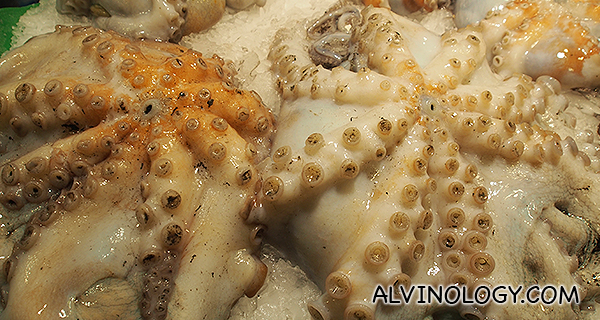
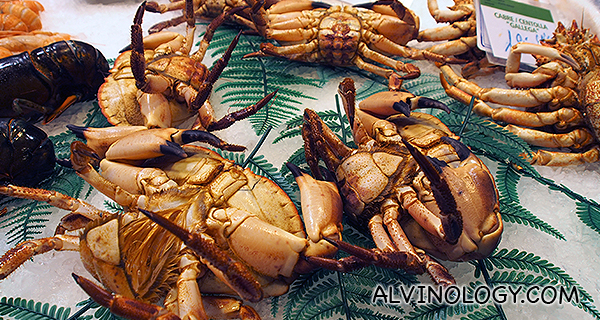
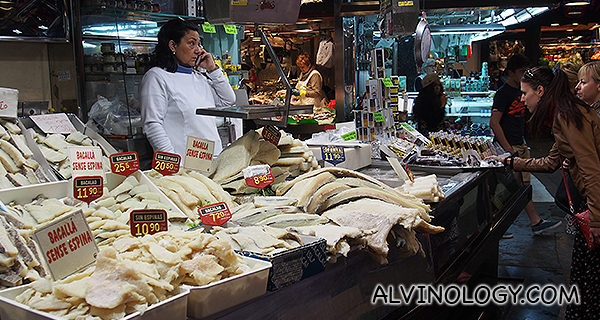
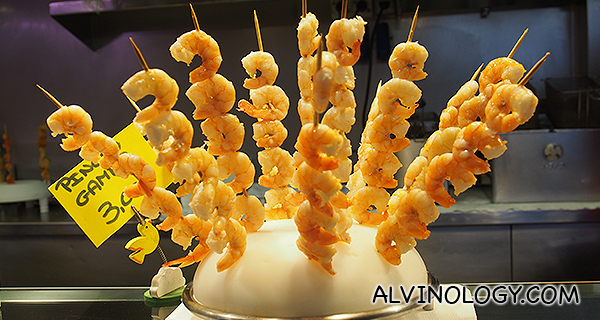
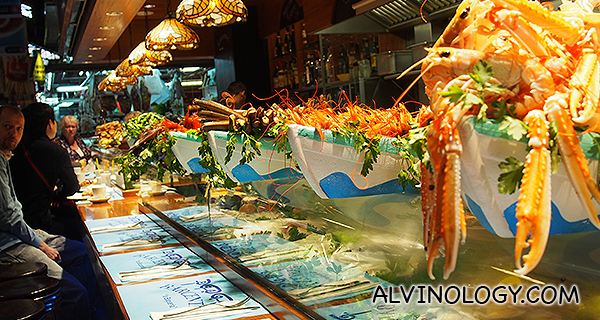
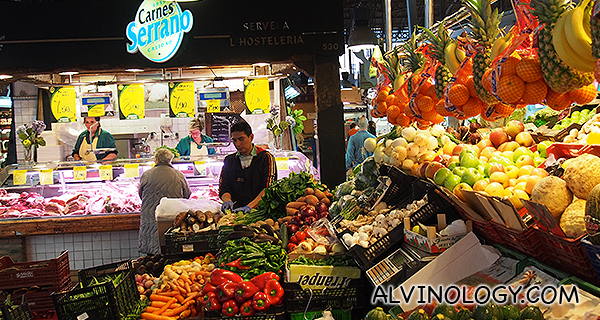
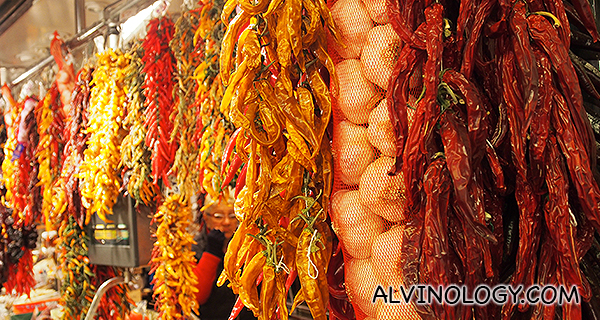
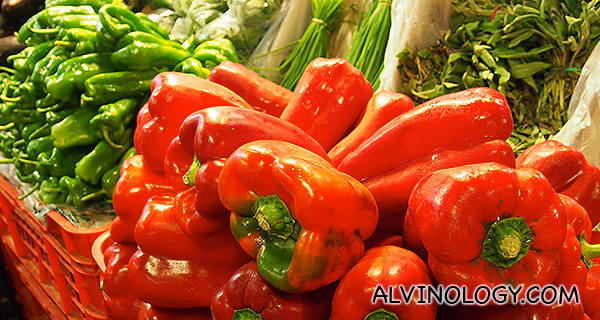
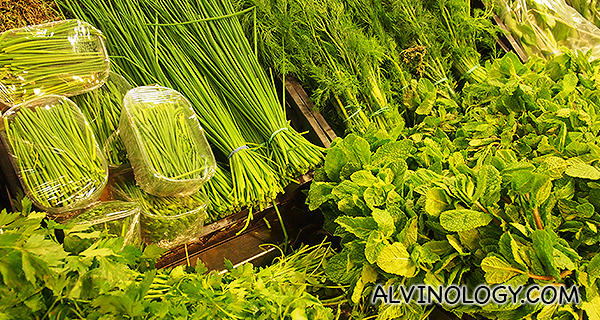
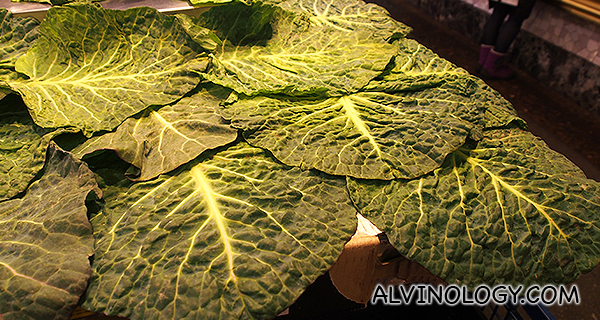
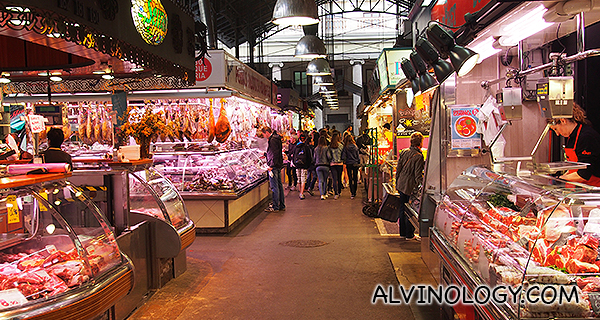
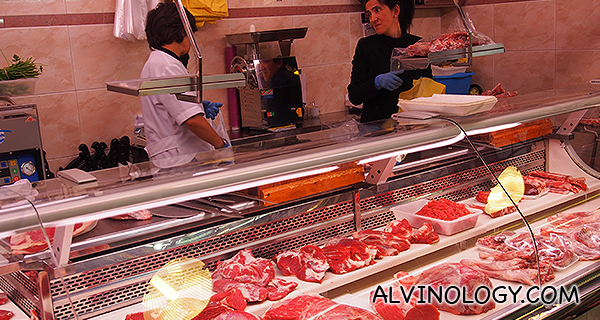
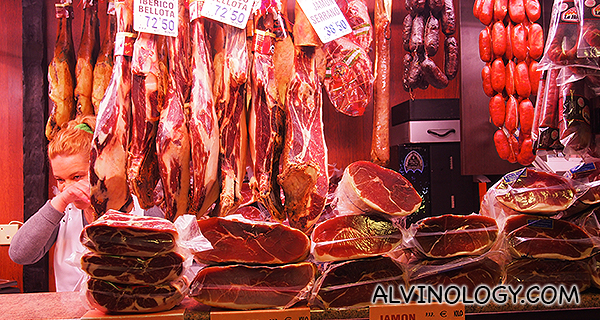
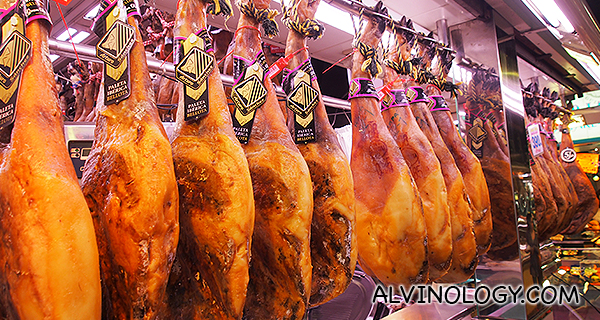
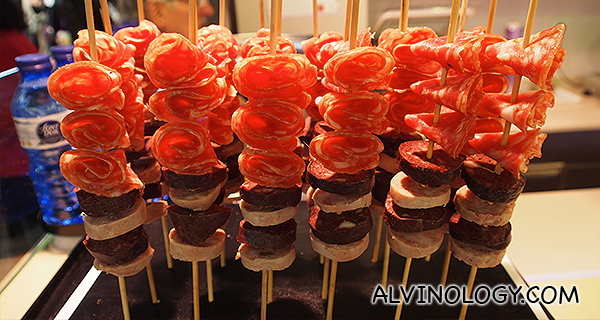
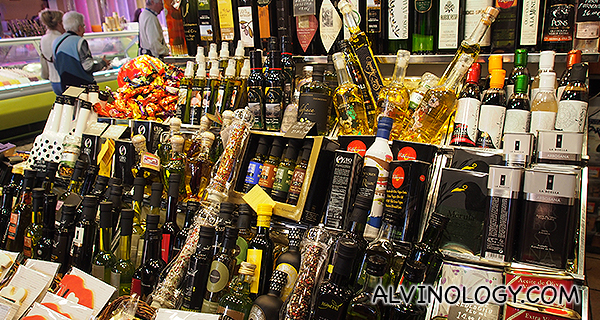
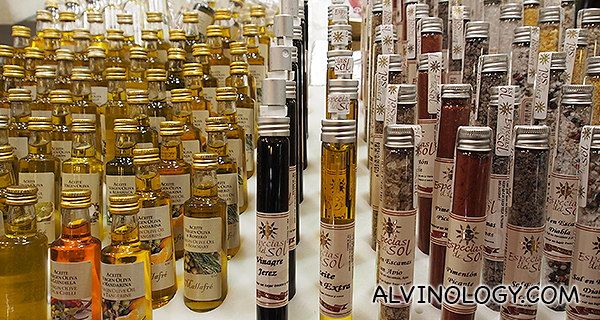
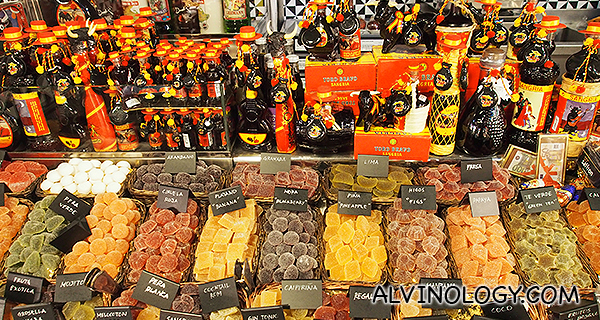
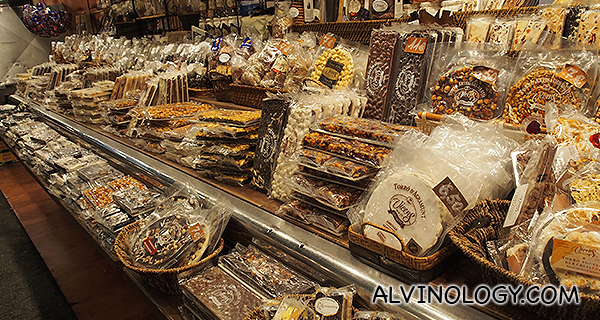
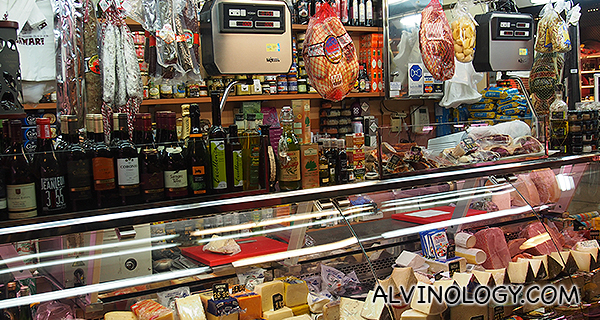
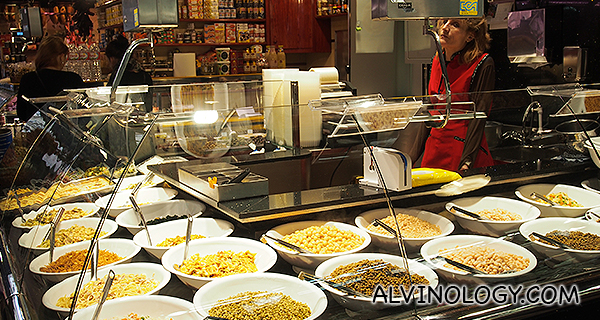
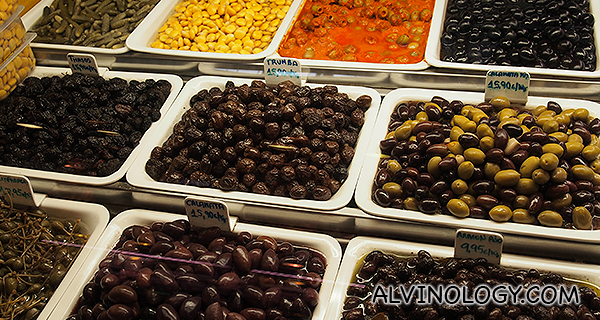
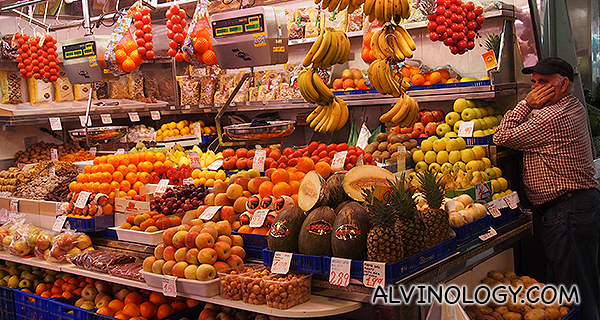
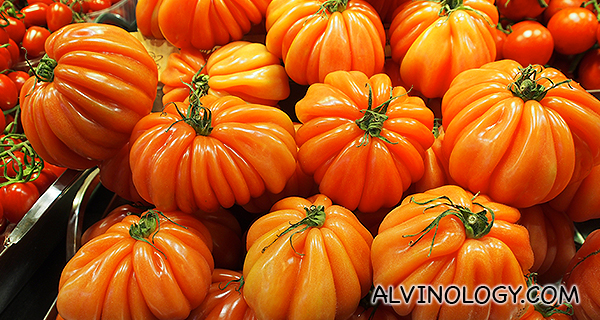
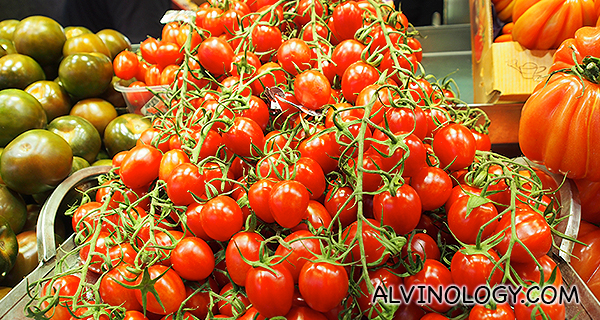
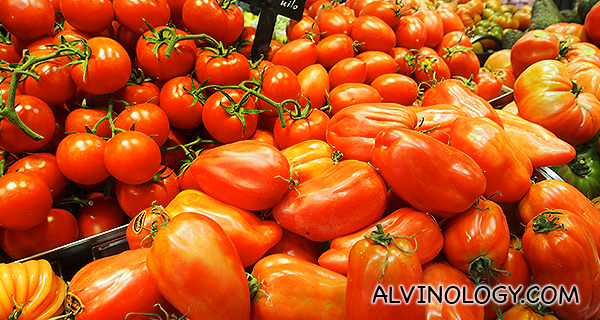
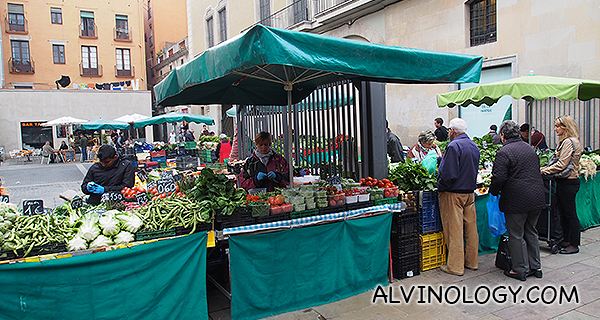
Via wikipedia:
The first mention of the Boqueria market in Barcelona dates from 1217, when tables were installed near the old city gate to sell meat. From December 1470 onwards, a pig market was held at this site; at this time it was known as Mercat Bornet. Later, until 1794, it was known simply as Mercat de la Palla, or straw market.
In the beginning, the market was not enclosed and had no official status, being regarded simply as an extension of the Plaça Nova market, which extended to the Plaça del Pi. Later, the authorities decided to construct a separate market on La Rambla, housing mainly fishmongers and butchers. It was not until 1826 that the market was legally recognised, and a convention held in 1835 decided to build an official structure.
Construction began on March 19, 1840 under the direction of the architect Mas Vilà. The market officially opened in the same year, but the plans for the building were modified many times. The inauguration of the structure finally took place in 1853. A new fish market opened in 1911, and the metal roof that still exists today was constructed in 1914.
La Rambla, on the other hand, is a street in central Barcelona, popular with tourists and locals alike. A tree-lined pedestrian mall, it stretches for 1.2 kilometres connecting Plaça de Catalunya in the centre with the Christopher Columbus Monument at Port Vell:
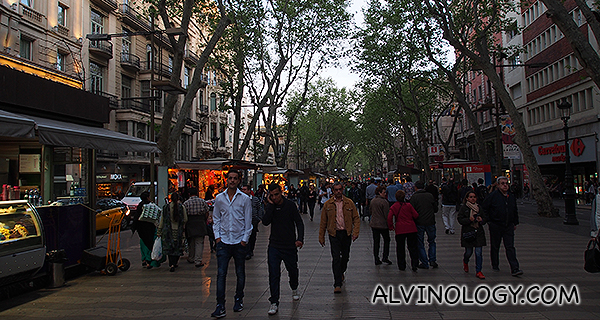
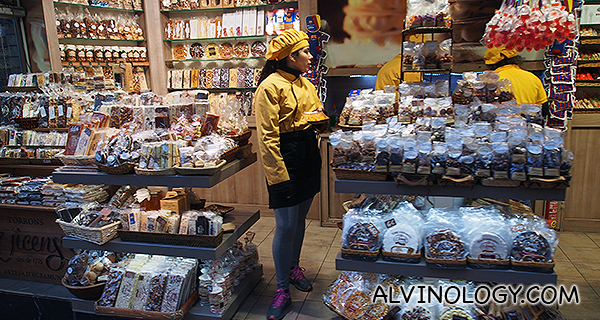
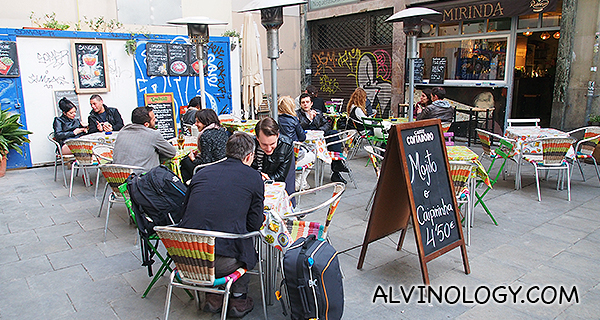
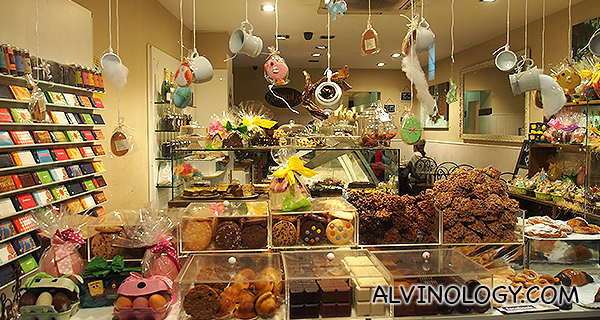
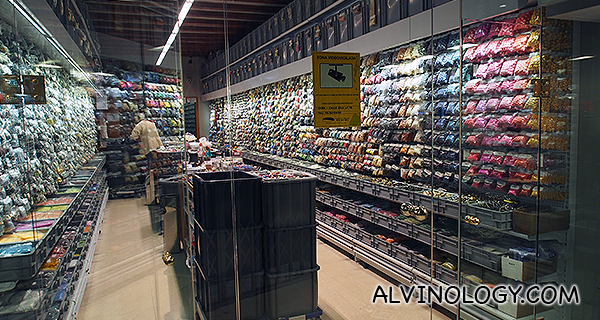
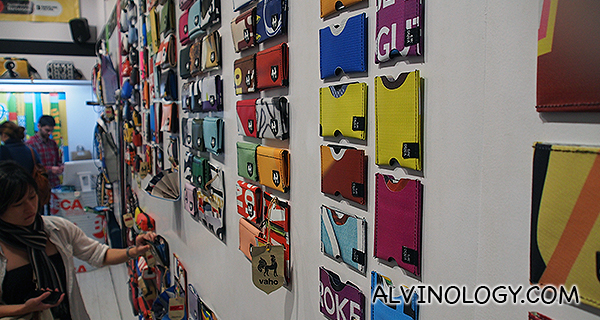
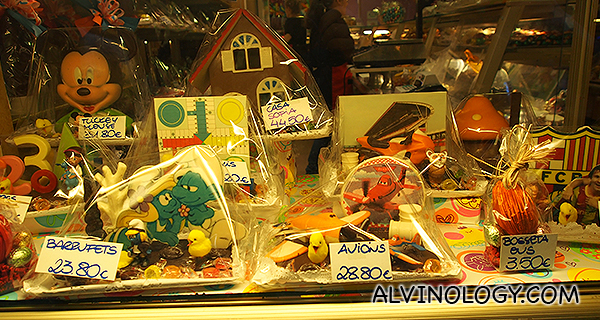
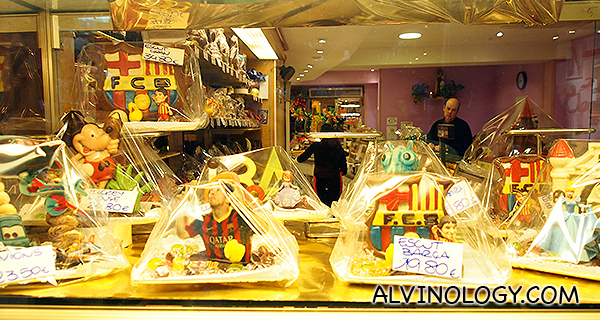
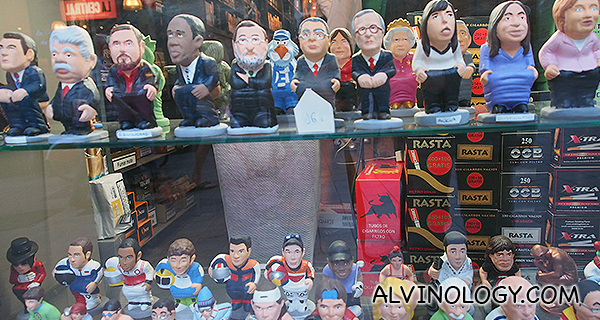
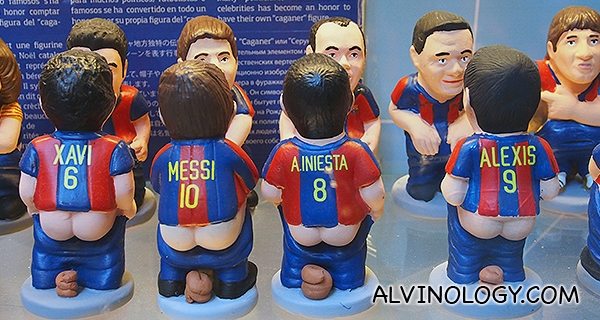
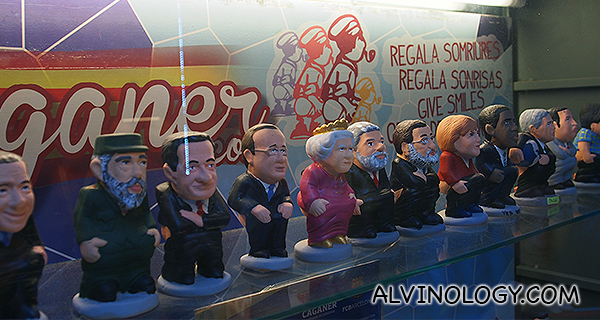
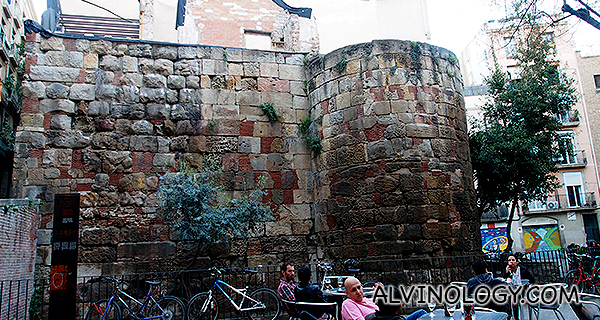
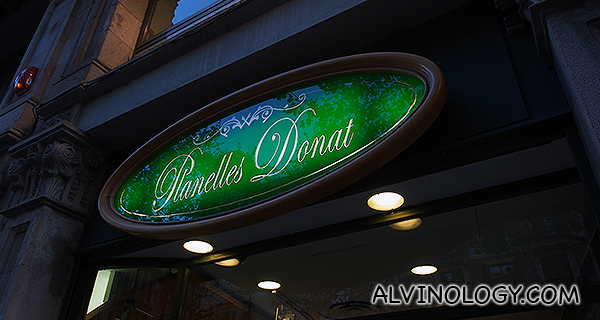
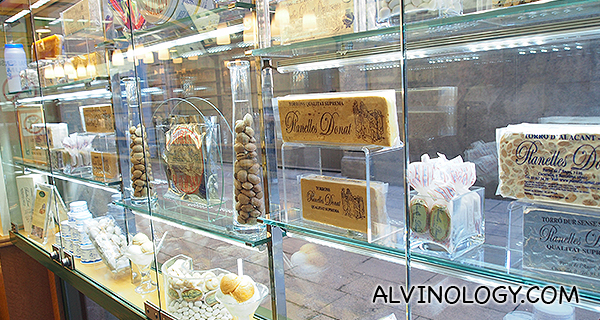
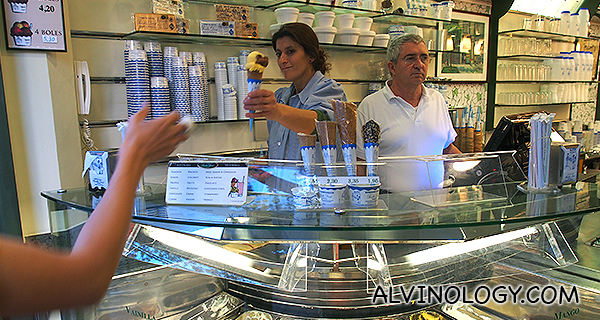
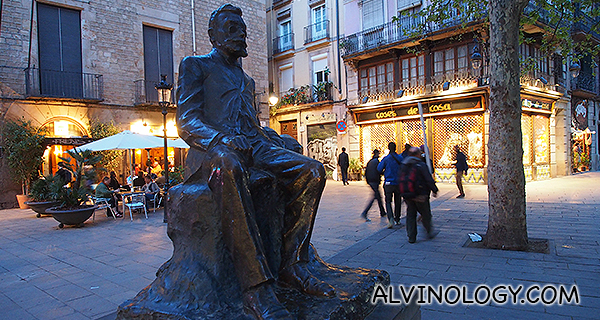
Admittedly, I spent more time shopping at the food and produce market rather than for trinkets and souvenirs. It’s a personal preference as I often find it harder to get stuff made locally when it comes to trinkets and souvenirs which mostly come “made in China” or in some developing countries. Food, on the other hand, most of it is local.
I will be writing one more post on the food in Barcelona to round up the posts on my trip to Barcelona with Qatar Airways. Stay tuned!











